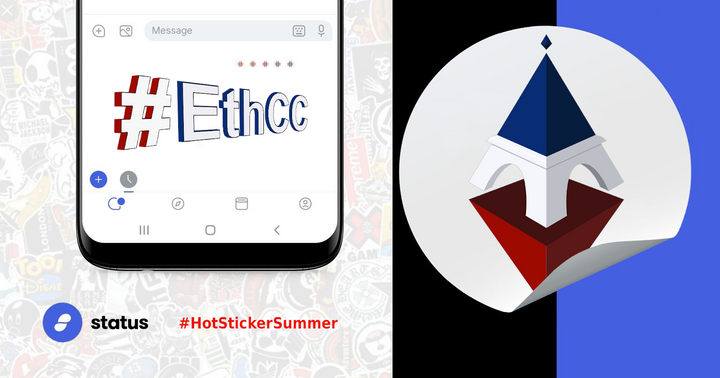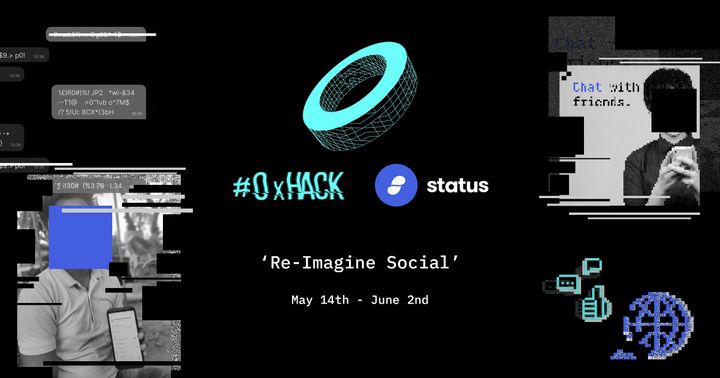As Status as an application-utility moves further into public view - and as our Organisation grows - we will increasingly be exposed to different social movements, political agendas and coercion. This document outlines our apolitical stance, the rationale behind it, and general instructions on how to detect and deal with subversion.
TLDR: Take seriously and uphold Free Speech.
Goals:
- Create a common understanding of Neutrality, Collaboration and Merit.
- Develop a technology and organisation culture that defends Neutrality, Collaboration and Merit.
Background
Before we discuss Status, it should be clear that our position has already been defined and expressed by the technologies we build upon. Even if we do not understand the reasons why, all we need to do is observe and understand the behaviour of Ethereum and emulate this as closely as possible.
Ethereum
Ethereum is a virtual machine the state of which is distributed over a p2p network that enables verifiable computing. Nothing more, nothing less. Everyone connected to the internet has fair, permission-less access; the only condition is that the transactor must pay for altering state, by either deploying and/or executing code.
Ethereum alone does not disrupt existing power structures; it does not promise a better world. Ethereum does not care about the contents of transactions, or who the transactors or account holders are. It does not care about its state; it mindlessly executes code.
Ethereum provides a multi-user computing architecture that can operate in a hostile environment.
Ethereum is an allegal system. Simply put; it cannot care.
Ethereum Nodes
The meaning of transactions and the influence on society of a shared, global state is derived from social context, i.e. by the people who use it and the ways in which they do so. Blockchains fork at the point of ideological differences; at any point in time if a group no longer feels that the chain they are operating on satisfies their needs, they can fork without permission.
Ethereum’s value and utility is established and recognised only by its participants; in most cases any given fork’s legitimacy and value will be smaller than the parent chain. It is in the self-interest of all to build value together, as a fork to a new dominant chain (a hard fork) represents a shift in group-think of the whole.
This affords transactors some assurances about the state changes they initiate, in so far as their transaction does not implicate or upset the majority of peers in the network. This gives rise to an crypto-economic assurance of semi-stable neutrality.
Status as a Technology
With Status, we have taken on the responsibility of creating a human interface to public blockchains.
Our client is a window into the world of Ethereum. Our responsibility is to ensure the glass in our window is as crystal clear as possible, to avoid distortions of Ethereum. Our goal is to make the software as alegal as possible, which will allow users voluntarily to determine their own experience of it.
As a utility, Status needs to support the worldview of each and every individual, therefore we delegate if not all, then the majority of decisions to the end user. We create tools that allow them to match their user experience with their own worldview.
It is up to the end user how they experience and utilize Blockchain technology. Their choices should be voluntary and without coercion. This means one-size-fits-all voting is incompatible. Users should be able to determine what network they wish to join. While our default user experience is centered around the longest dominant chain, our moral compass is not.
Like Ethereum, the position of Status as a technology should be neutral. It is not our place to attempt directly to solve social problems. Instead we create a utility; the foundation and tooling for people to solve their social problems. How we implement Status can introduce distortions to the social fabric. To maximise utility for all, our software and organisation must be neutral.
Status is open source software, and as such we are imbued with the traits of merit and collaboration; these help inform development in both technology and organisation. When merging code into master, the only thing that matters is quality code. It does not matter how the code came into existence.
If the Status codebase is forked, it does not indicate we have violated neutrality. However, this does indicate an ideological or market difference that we have either failed to account for, or the fork has a social or political agenda.
In this case, we need to assess if the fork should be merged into master. Our guide is a hard stance on neutrality - the question we have to ask ourselves is, "How can we adapt the software presented to the user with unbiased explanatory information, along with the tooling and information that will allow the end user to decide?"
Status as an Organisation
Status as a technology does not get developed or spread into the world without our collaborative effort and therein lies our biggest hurdle. We, as humans, care and in this case that is our weakness.
We have all developed a worldview; each individual comes from their own life experience and - as a result - our subjective experience can cloud our judgment and make taking a hard stance on neutrality a difficult hurdle to overcome.
When representing Status and working on the project, we all have a duty to leave our biases at the door. While we can lean on our peers to some degree for guidance, it requires a substantial amount of independent thought, critical thinking skills and extended foresight, mulled over a period of time to see clearly. The fruits of this process are often unpopular and misunderstood by most.
Nevertheless we must actively guard our apolitical stance. Should Status be successful, then it will be used by many social groups. As a result, there are going to be times where we strongly disagree with what we enable. It is then when we will most be tested.
People often hold strong beliefs and integrate them into their identities. If beliefs are challenged, a common response is a strong negative emotion. This isn’t inherently a bad thing, however, we must be mindful of ourselves and understand where our personal beliefs lie, and be honest with ourselves if it violates our stance on merit, collaboration or neutrality.
Another more insidious approach to dealing with people is ‘being reasonable’. At face value being reasonable seems the most appropriate choice. The problem is that too often one is unable to have all the information at hand and therefore unable fully to comprehend the issue, relying on low resolution thought to make decisions. High-resolution thoughts take time and deep understanding.
We can be reasonable, we can be emotional, we can be socially engineered. We must be on guard. Each and every one of us has a duty to uphold and defend privacy, neutrality, collaboration and merit not just in ourselves, but in our peers as well.
Politics & Coercion
Due to the implementation of representational democracy and monolithic governing bodies, modern politics is centered around a mechanism-of-action that coerces a key decision maker to change a one-size-fits-all policy, affecting everyone.
This mechanism-of-action is fundamentally incompatible with the permissionless and voluntary nature of how open source software and public Blockchains are organised and deployed.
Therefore, if any given group is unable to collaborate and end up in a dispute with Status as a neutral technology or organisation, they can & should fork our code.
Identity Politics
With the demise of mass movements, we've seen a rise in identity-based social movements. Currently these movements are centered around Social Justice, Race, Gender & Sexual Orientation. While their issues may be valid, it is not our place to recognise the validity of their issues nor directly aid them their causes.
Often these issues are polarising, both sides of the issue will demand our engagement and, if we are upholding our hard stance on neutrality, we will attacked and condemned from both sides.
We should do our best to identify the objective reality. This is a tedious process of independent verification, deconstructing the argument and the assumptions the argument rests on and relies on finding reliable statistics. Often the middle-ground is unpopular even for reasonable people.
The exception to this is that a marketing campaign should always be designed to maximise the conversion rate of its target market.
Example: An attempt to feminize Status.
This year, a suggestion to fix a graphic used in our public communications to ensure a mixed group was made. This suggestion was valid because it more accurately represented our market demographics and reality, in fact this suggestion was by far more middle-ground and neutral than the original graphic.
However, from there a new suggestion was born, to change the pronoun we use in our communications from 'he' to 'she'. Shortly thereafter, the idea was further expanded to install femininity throughout Status communications. While the idea is seemingly benign, ‘she’ to the exclusion of ‘he’ does not match the human gender ratio, which is 1:1, the current market or the contributor base.
If we were to implement this, the best we could do would be to alternate pronouns per communication piece and leave this up to a random number generator, a provably fair coinflip. We humans cannot be involved in the decision, even if we were to manually alternate pronouns per communication piece, as this exposes an operational security hole to be exploited and would violate our neutral stance. The only exception to this would be in specific marketing campaigns for specific markets, and the change of a pronoun would have to have a demonstrable impact on the marketing campaign success metric.
The rationale for this idea is feminist in origin, "Status represents the breaking down of power structures and challenging our preconceptions".
Neither Ethereum, nor Status represents directly breaking down power structures.
While a public blockchain system has some interesting properties for a sovereign individual and liberty in general, it is entirely likely that power structures will reassert themselves on top of a public blockchain medium, or create their own variant systems. Nevertheless the important point here is, we work on the technology and it’s up to the individual to voluntarily choose their fate.
Even if we did make a stance on breaking down power structures, such a stance would require a deep and thorough understanding of how and why those structures exist in the first place, and an understanding of what a world looks like without them based on the best data available and deductive reasoning. This is an exercise I leave up to the reader, however I found J.D. Unwin’s “Sex and Culture”, Thomas Sowell’s “Knowledge And Decisions” and “The Quest for Cosmic Justice”, along with “Coming Apart: The State of White America, 1960-2010” to be humbling and have helped me refrain from taking any strong stance on matters far larger than myself.
Diversity
Status is already an organisation of many races, genders, cultures and worldviews. This has been a result of the mechanism of Merit and not a result of 'handouts' or inclusivity quotas.
Given our current organisational size, a strict Meritocracy achieves egalitarian ideals in a just and equalizing manner. There is no reason to deviate from this.
To guard yourself against these movements, it pays to:
- Listen without judgment to both sides of the argument in depth.
- Critically evaluate the argument and the assumptions it rests on, independently find and verify data from unbiased, reputable sources (government census).
- Identify any movement’s shaming language.
- Identify victimhood: does the movement see themselves or some group as a victim, and demand that others must change to accommodate them?
- Identify in-group signalling and memes, often the commonly repeated memes are emotionally charged and have little basis in reality.
Remember, their issues are often valid, they just have no place in what we do.
Institutional Coercion
While Ethereum or any fully decentralized system is resistant (short of shutting down the entire Internet) to institutions who rely on coercion as their mechanism of order, we however are dependant on distribution channels, and with that we are subject to coercion. There will be a time where in a jurisdiction we will be forced against our users, against our will. In some cases we will be under gag order and unable to communicate with our users without serious consequence.
We must do our best to ensure that Status software is entirely open source with a deterministic build pipeline, the project codebase is replicated and maintained in as many locations as possible.
We must also sign our commits and binaries with multiple signatures from independent builds, as well as give users a tool to independently verify their binaries (most likely against a smart contract, immutable data store that can operate in a hostile environment and/or other global users).
The way we design the technology should require as few deviations from the original codebase as possible, and remain relevant to that distribution channel only. It will often be in our best interest to own the unwilfull project modifications instead of letting ownership of the entire software and brand fall out of our influence.
If the tooling we provide is built and distributed correctly, it may be possible to make no changes directly to our binaries and instead offer a strong reputational entity within the network per jurisdiction, simultaneously satisfying both our users liberty and their governing institutions.







